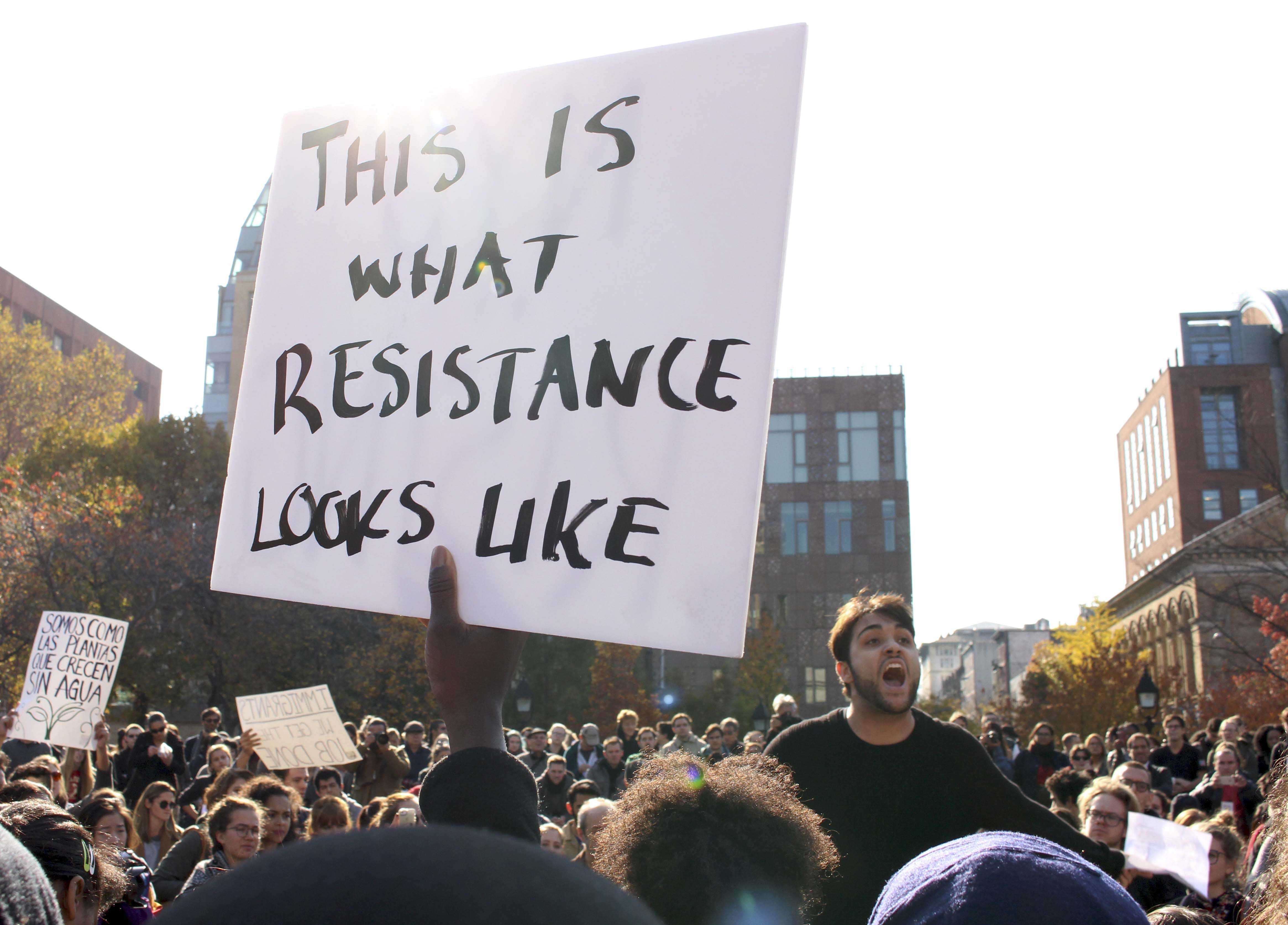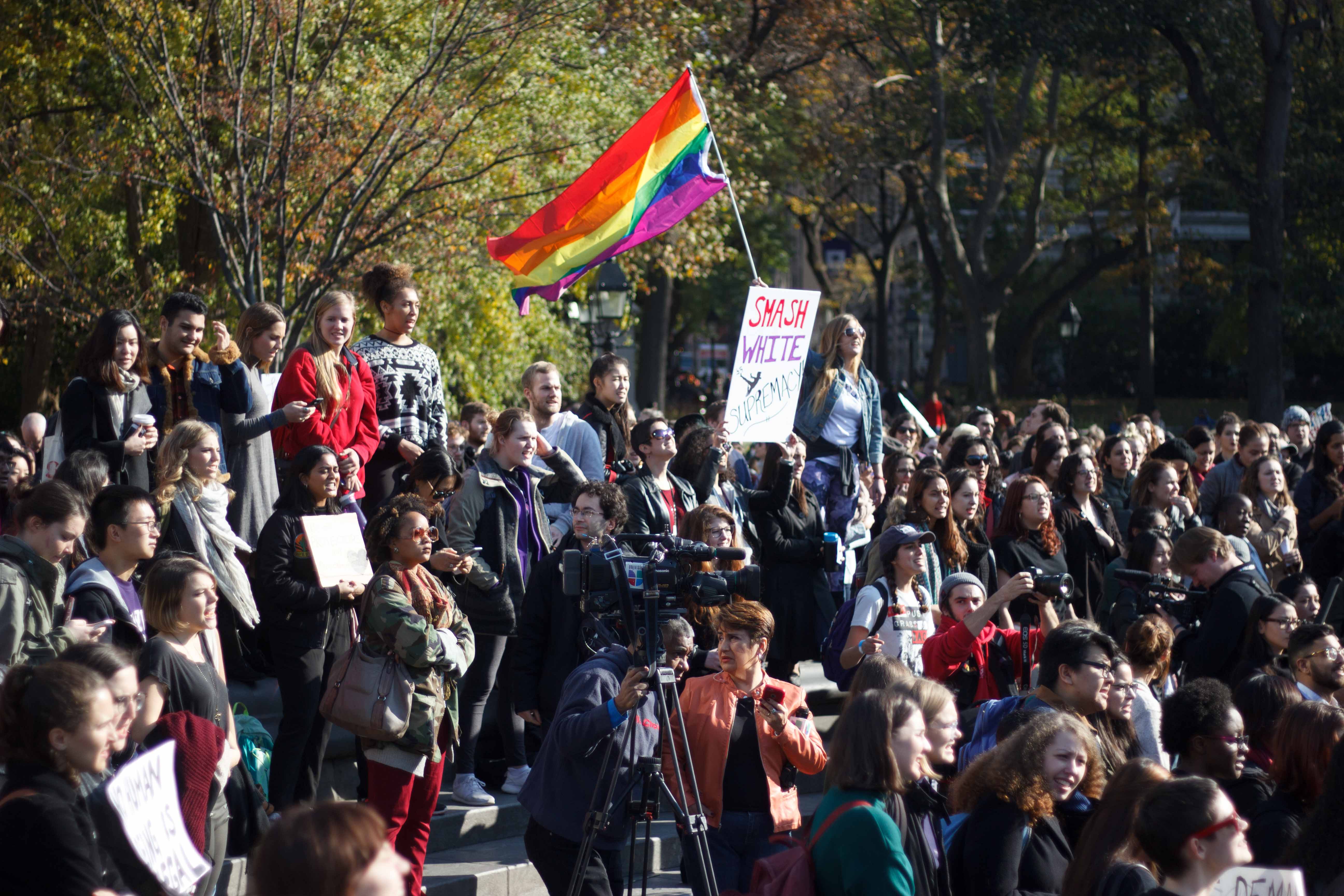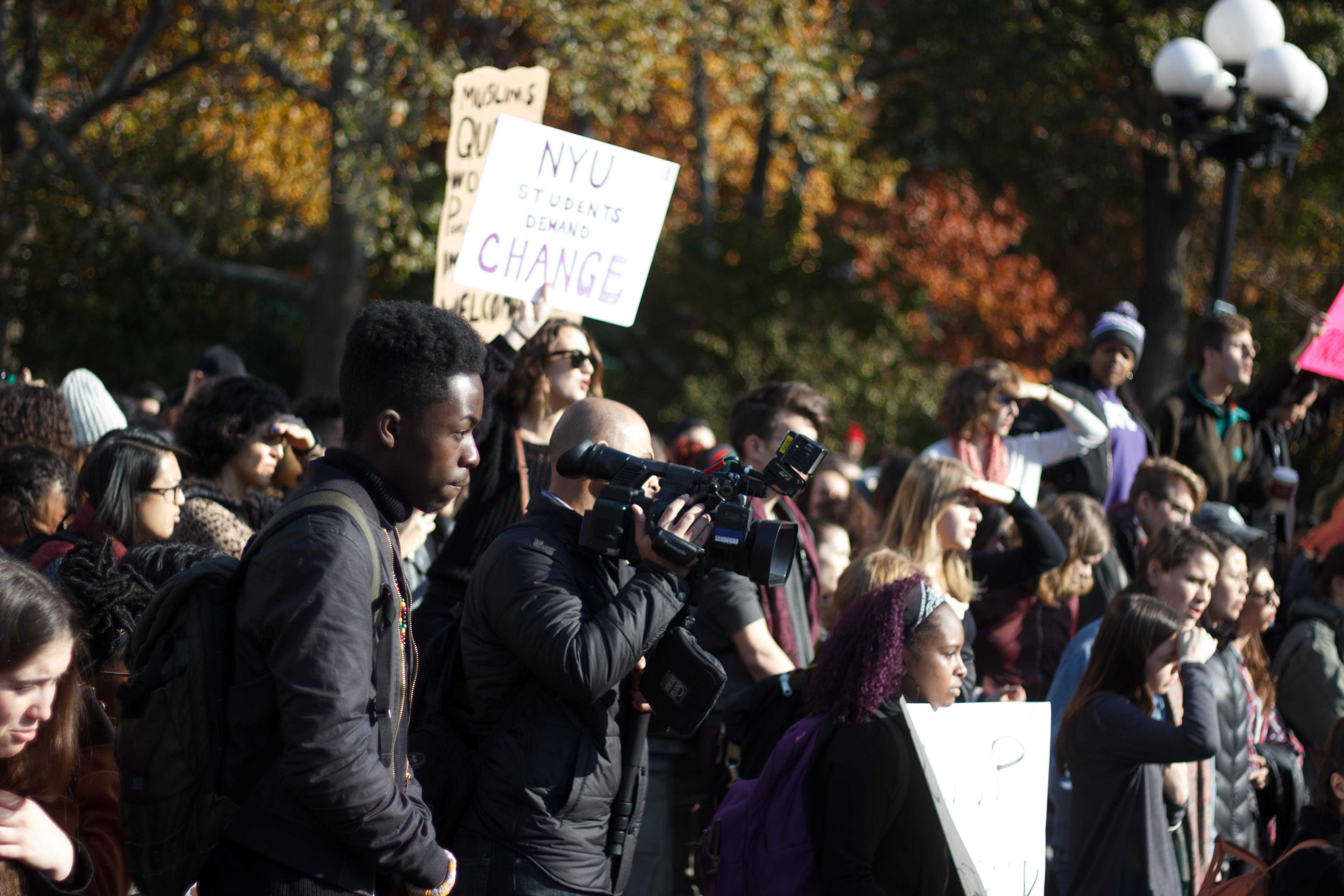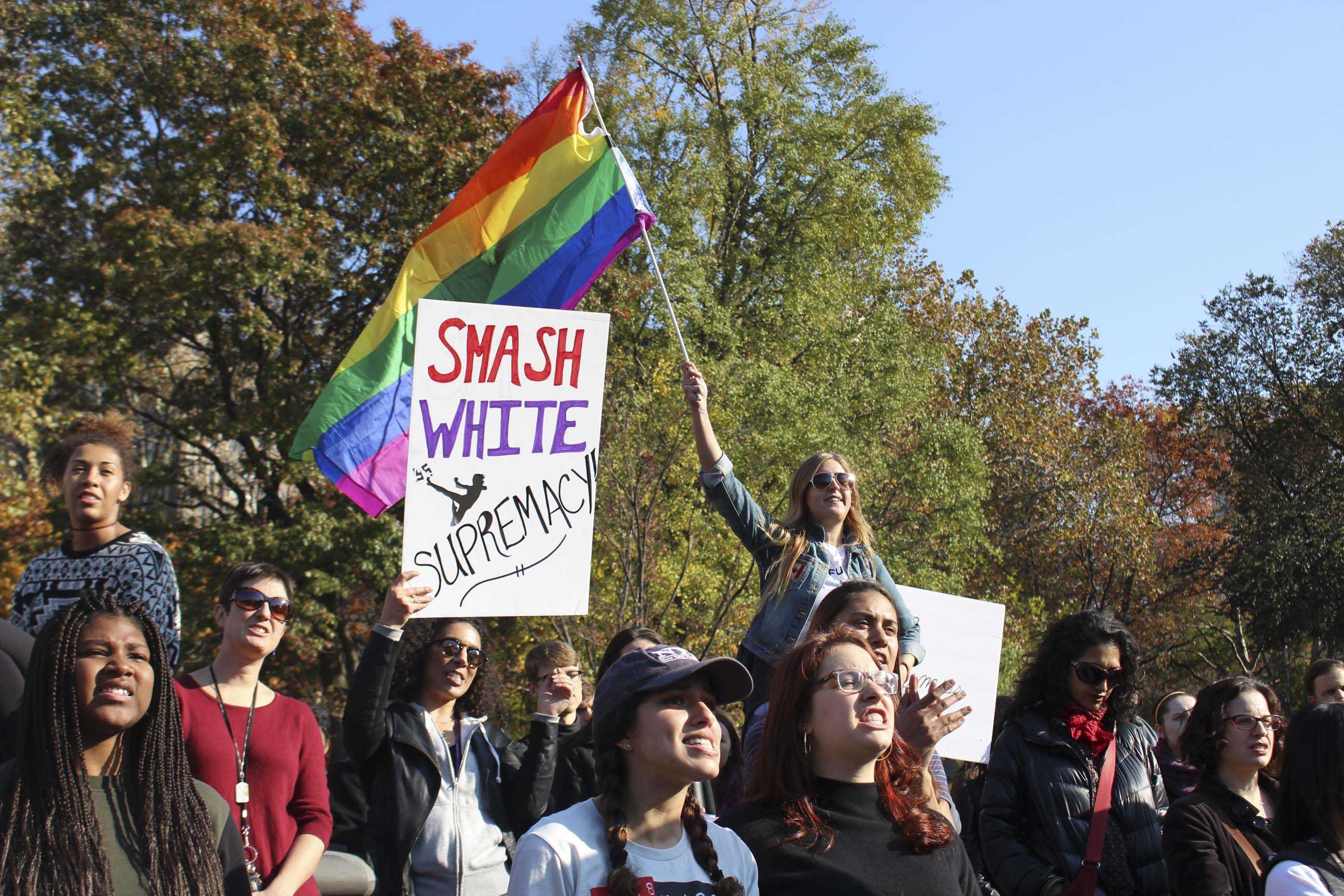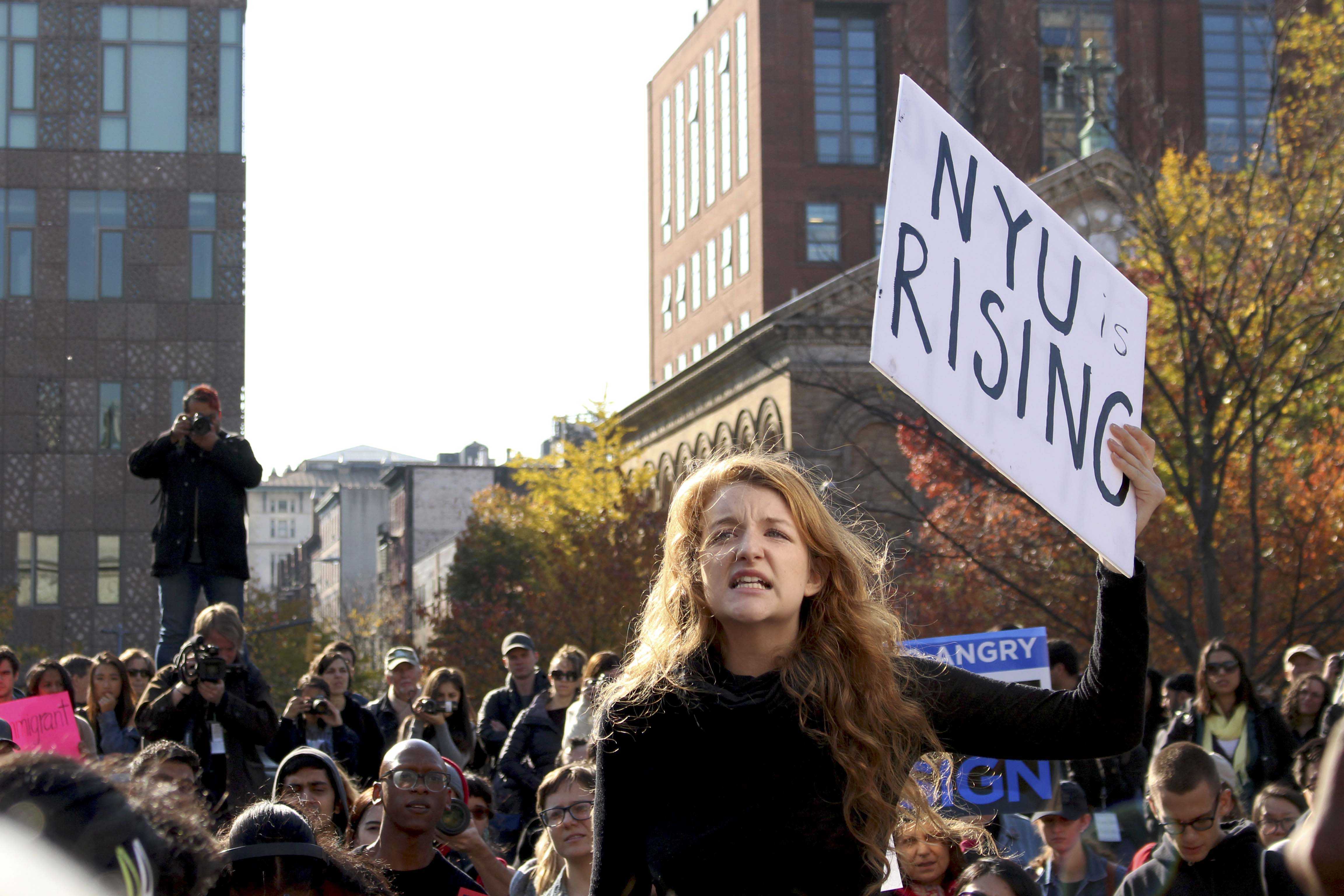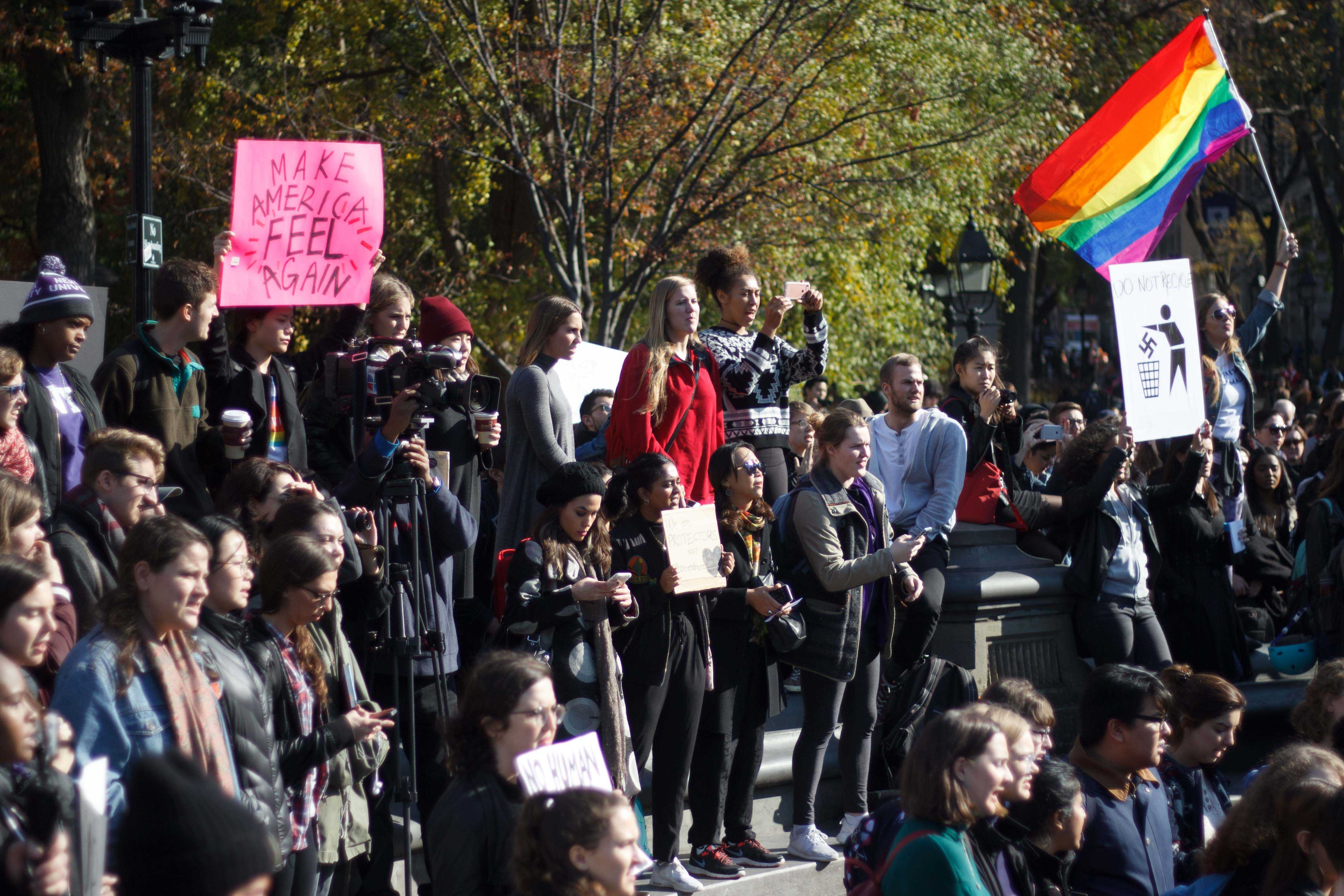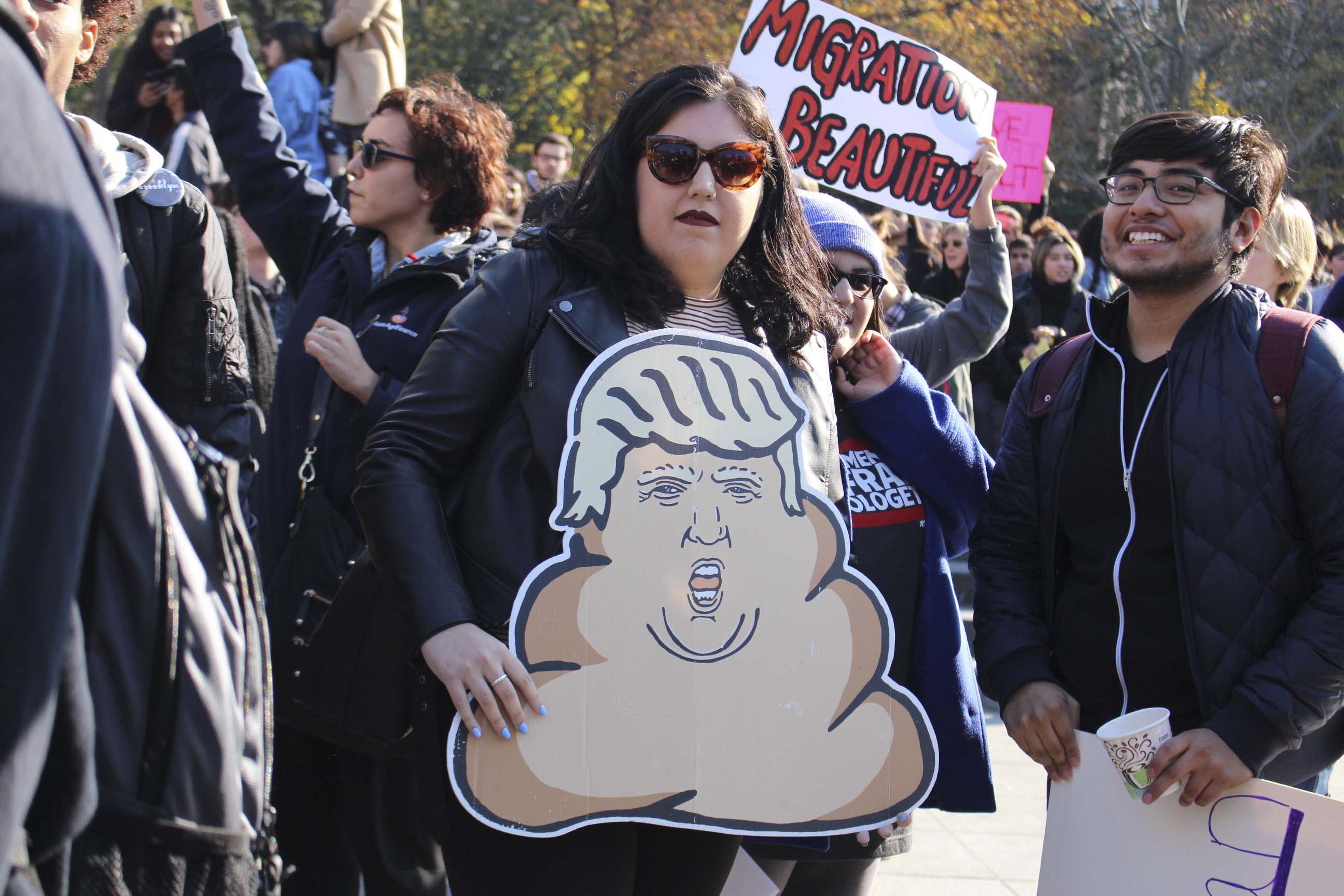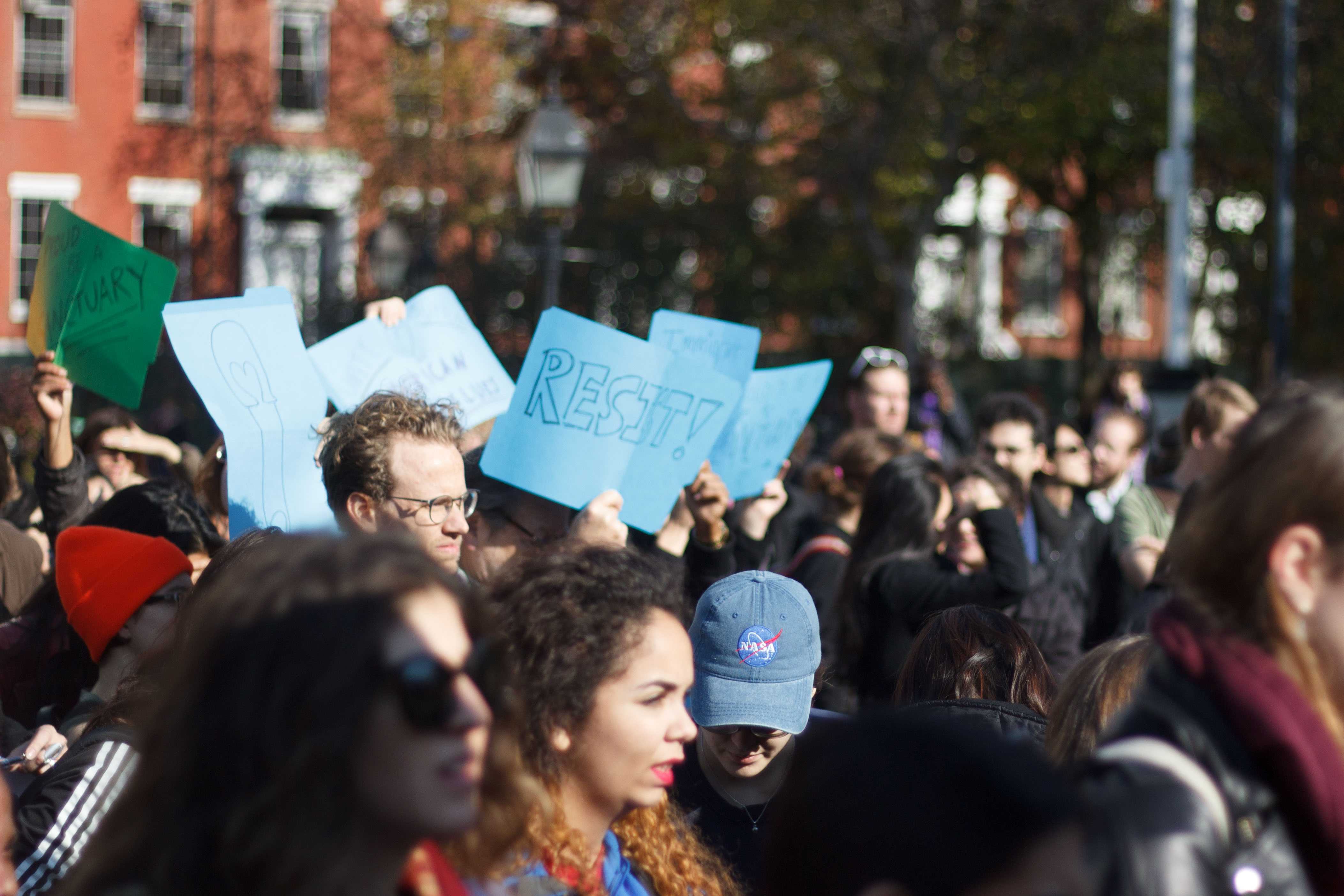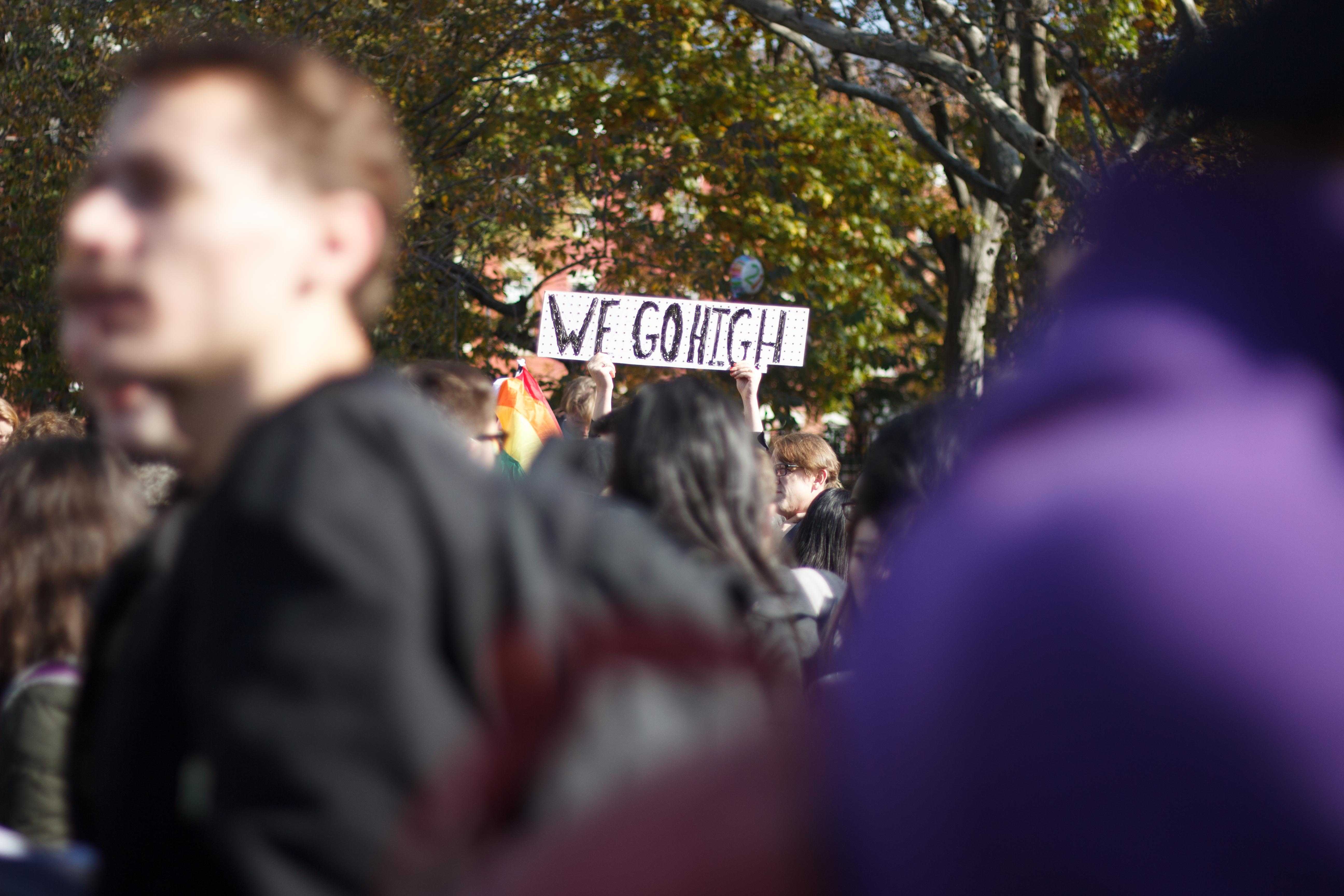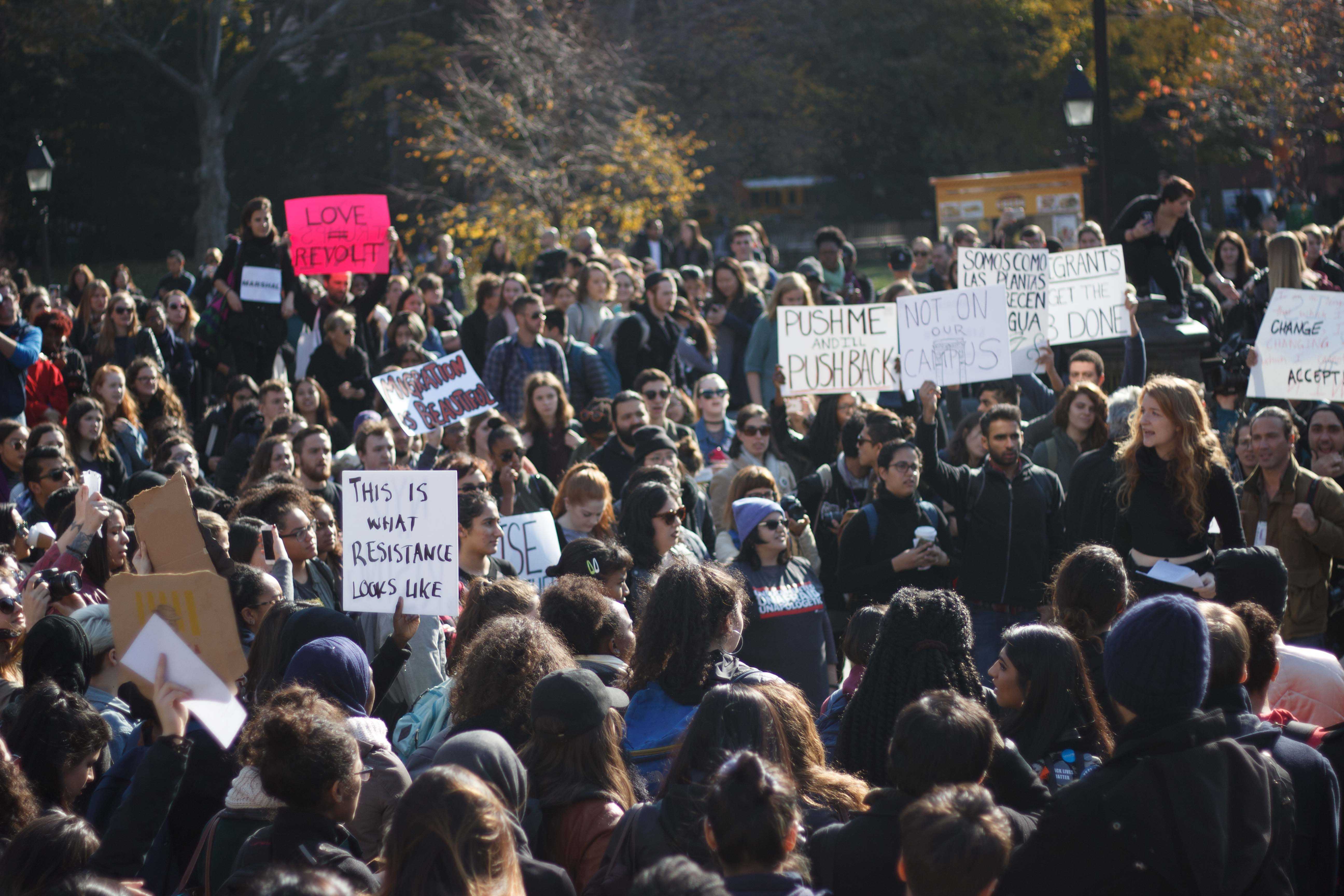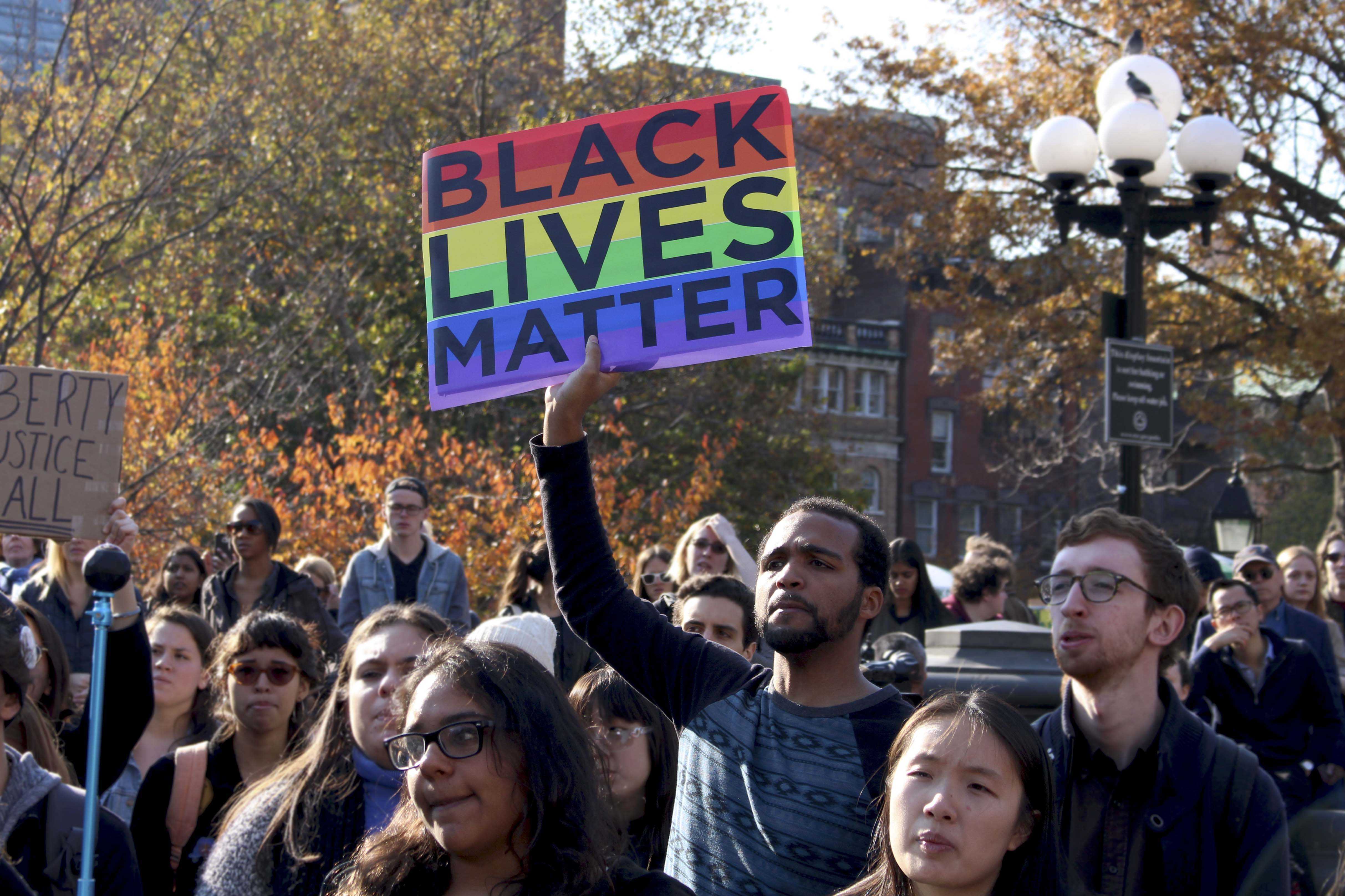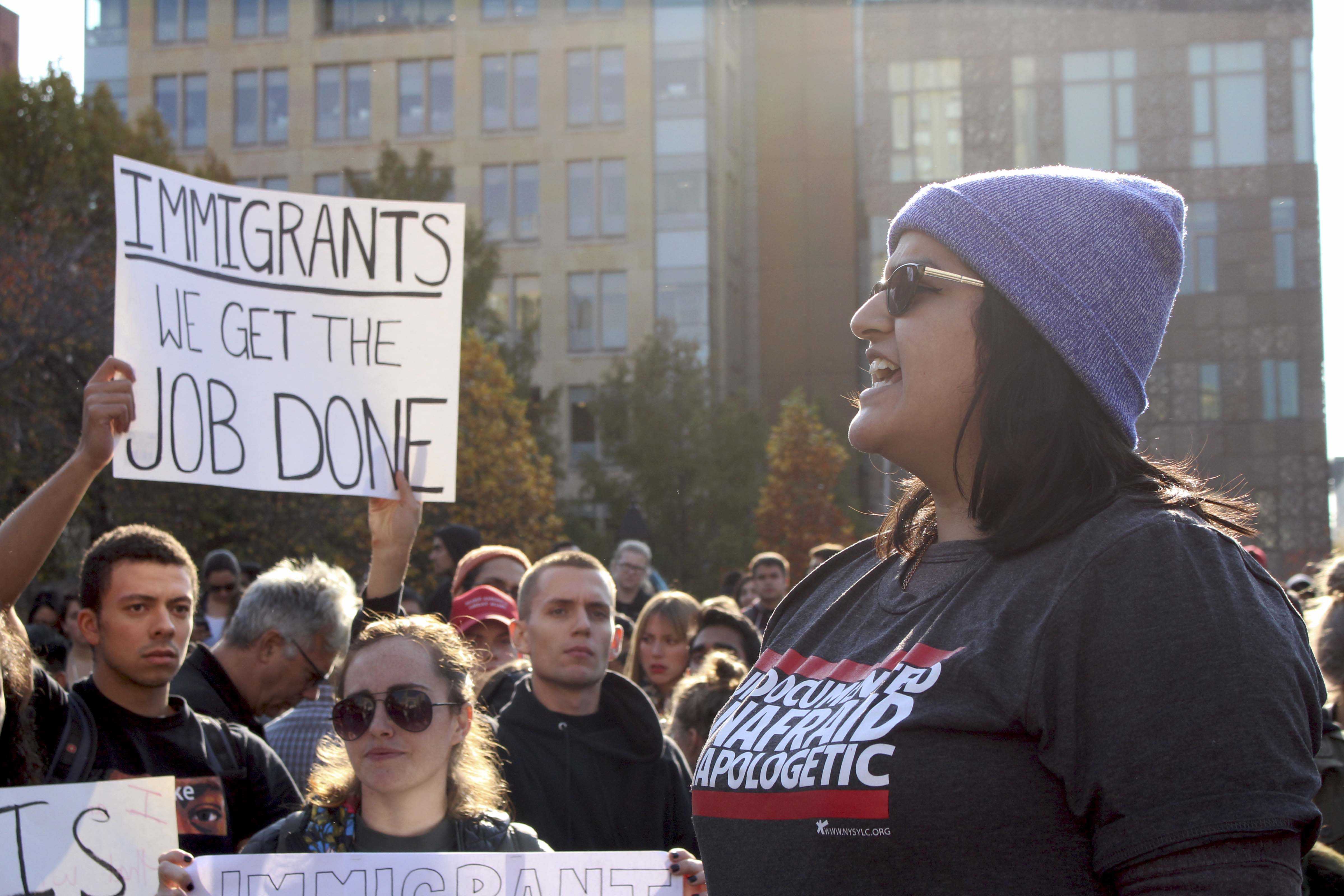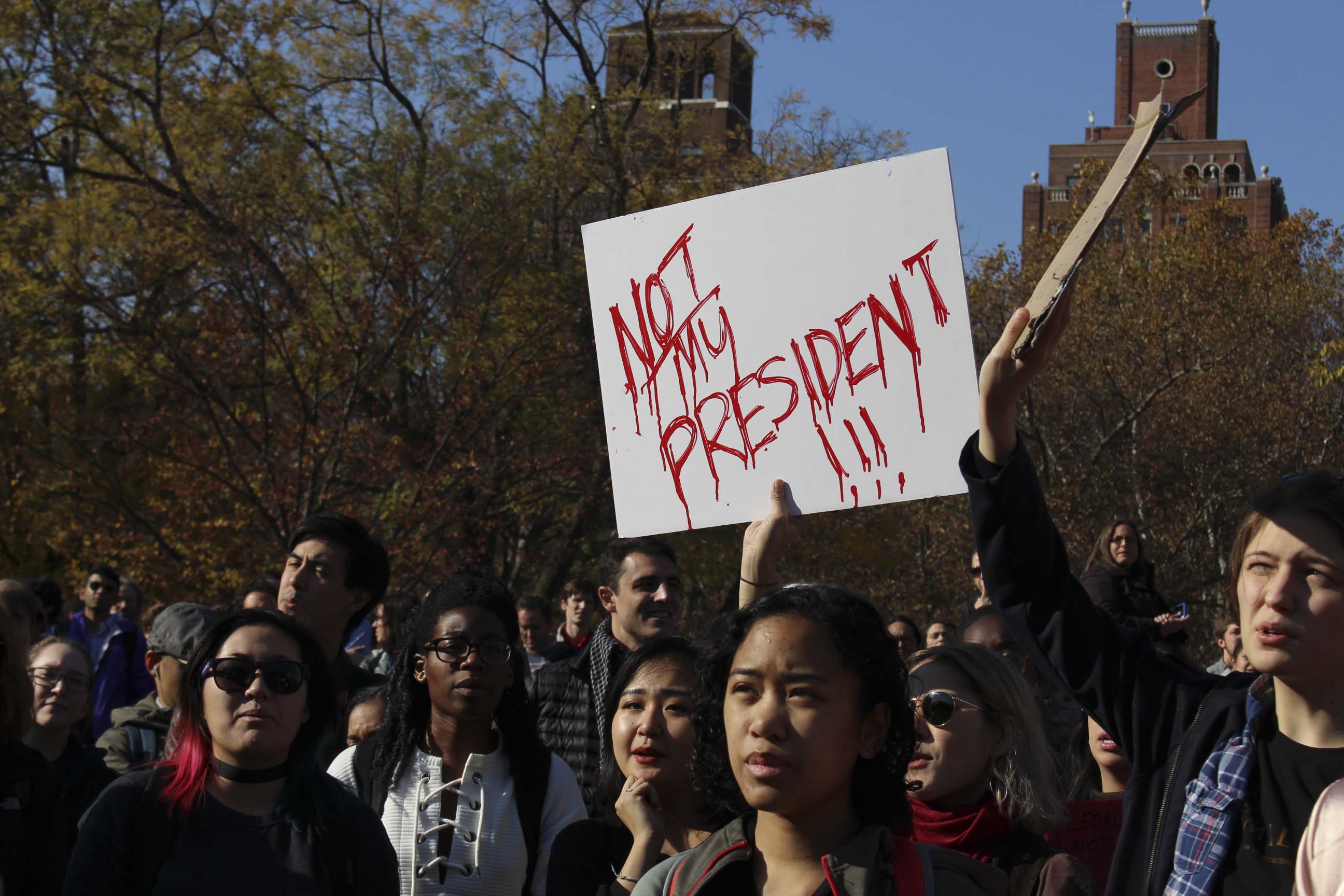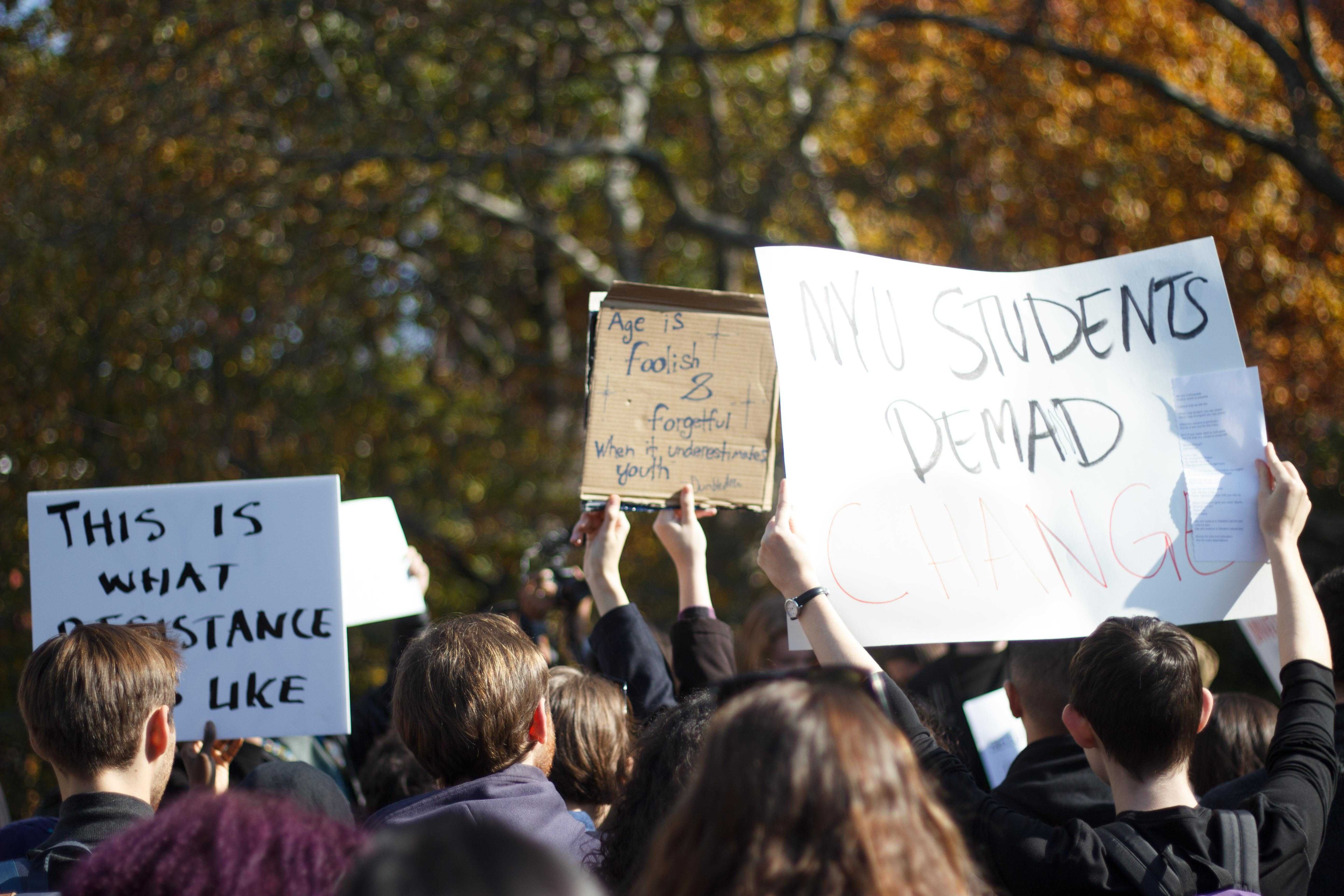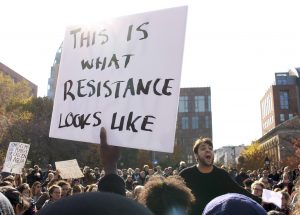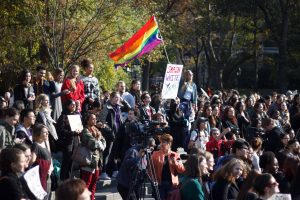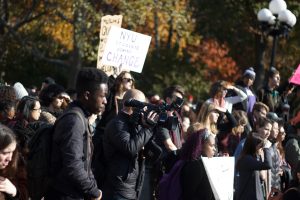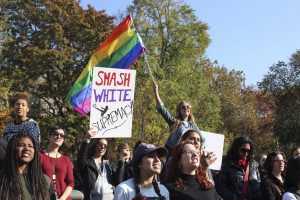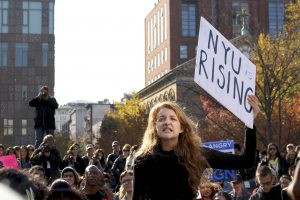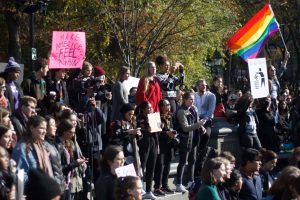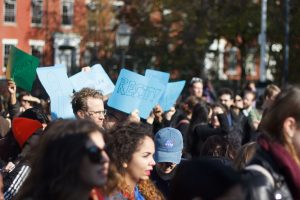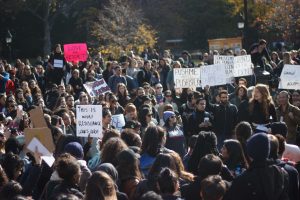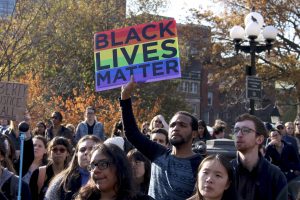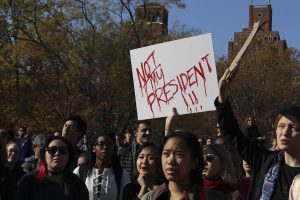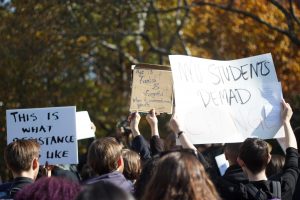NYU Still Not a Sanctuary Campus
January 30, 2017
Shortly after Donald Trump was elected to the presidency last November, NYU students staged a walkout in Washington Square Park, advocating that the university become a sanctuary campus for undocumented students. And if you read the email from President Andrew Hamilton shortly thereafter, you might have thought the effort was successful.
However, to the chagrin of students and faculty alike, the school was never officially declared a sanctuary campus — and the university has no plans to make it happen anytime soon.
Now, NYU Sanctuary, a new campus advocacy group consisting of students and faculty, has published an open letter urging Hamilton to make NYU a sanctuary campus.
“This declaration of sanctuary would affirm NYU’s commitment to uphold the key values of the university at all levels and sites of the NYU community by working actively and dedicating resources to the protection of its students, staff, workers and faculty,” the letter said.
The movement comes shortly after an executive order signed by President Trump on Jan. 27, which barred people from seven Middle Eastern countries from coming to the United States, showing the president’s willingness to act out against immigrants in the United States.
Without reading Hamilton’s letter closely, it seemed as though he conceded to students’ demands. Among other clarifications, his letter assured students and faculty that federal officials would not be allowed on campus to gather information about immigrants members of in the NYU community without a legal order, and scholarship assistance to non-U.S. citizens would continue regardless of immigration policy changes.
Hamilton sent another email to the community yesterday stating that the university would safeguard those persecuted by Trump’s new immigration policies. NYU Sanctuary, however, feels that Hamilton’s words are purposefully vague, adding that if NYU is to be a sanctuary campus, he must explicitly say so.
“There is a misconception because Hamilton’s November 2016 letter — which he refers to again in his email sent out today — is strategically tricky,” the students of the group said in a statement. “For example, while he does write about supporting DACA and our undocumented students, he leans on language from existing policies and the notion that New York City is already a sanctuary. Yet, if NYU is a ‘global university’ with many campuses, we can’t just lean on one city as sanctuary.”
In communication with the entire community, the university maintains that its first priority is the well-being of its community members.
“We have written to those members of the NYU community who might be subject to the order to let them know the University supports them, to highlight the risk they would be taking if they choose to travel outside the United States and to tell them that we have arranged special informational sessions for them with Law School faculty who specialize in immigration and administrators from our global programs,” NYU spokesperson John Beckman said in a statement he sent to WSN.
Despite the university’s statements, NYU Sanctuary is still not satisfied with its stance on protection for immigrant students and faculty members. The group’s students said Hamilton has not made NYU a sanctuary campus to appease NYU’s benefactors — like John Paulson, the hedge fund manager on NYU’s board who managed Trump’s economic policies.
“Without the declaration of sanctuary, NYU does not have to commit to extending further policies, actions and resources that will protect students, staff, faculty and other members of the NYU community as the Trump administration inevitably tacks on more racist and xenophobic policies,” the group said in its statement.
While the group acknowledged that NYU is making positive strides towards safeguarding against Trump’s potentially dangerous immigration policies, it wants the university’s leadership to make the final, official step to guarantee protection for immigrants.
“Declaring Sanctuary status would make more concrete our commitment to keeping NYU an open university to the world and would send an important symbolic message of support to our students, staff and community members,” NYU Sanctuary’s letter said.
A version of this article appeared in the Monday, Jan. 30 print edition. Email Natasha Roy at [email protected].






















































































































































